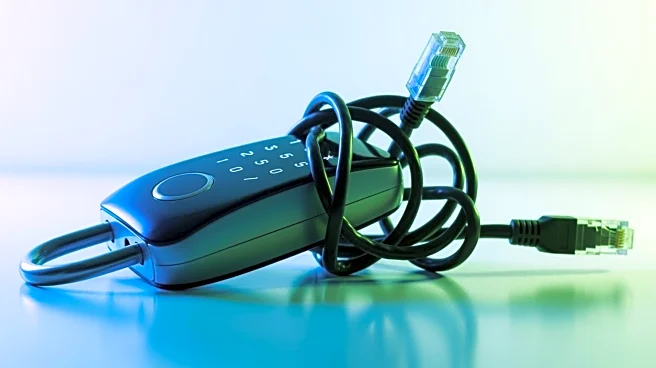What's Happening?
Utility companies are increasingly becoming targets for identity-related fraud, with the Federal Trade Commission's Consumer Sentinel Network reporting approximately 28,000 cases of stolen identities used
to open new utility accounts in 2024. Despite these figures, the true extent of the problem remains largely hidden due to the lack of legal requirements for utilities to report fraud incidents. Fraudsters exploit the limited identity verification processes in place at many utilities, using stolen or synthetic identities to open accounts and receive services without detection. The delayed billing cycles, which can stretch from 30 to 60 days, provide scammers ample time to use services before any red flags are raised. Additionally, service protections such as shutoff moratoriums during extreme weather or for medical critical care designations further shield fraudsters from enforcement.
Why It's Important?
The rise in utility fraud has significant implications for both consumers and the broader financial ecosystem. Fraudulent utility accounts not only lead to unpaid bills but also serve as a gateway for larger crimes, enabling fraudsters to simulate legitimate behavior and establish synthetic identities that infiltrate banks, fintechs, and government programs. This systemic issue results in direct losses for utility providers and poses a risk to consumers who may unknowingly become victims of identity theft. The absence of regulatory oversight and underreporting magnifies the problem, highlighting the need for utilities to adopt stronger verification and monitoring measures to protect their operations and customers.
What's Next?
To combat the growing threat of utility fraud, companies are encouraged to implement layered, proactive approaches. This includes adopting tools such as device fingerprinting, phone/email risk scoring, and identity-link analysis to detect anomalies at account opening. Monitoring payment patterns for signs of synthetic identity use and auditing referral programs to limit exploitation are also recommended. Additionally, utilities are urged to collaborate across providers to share data and identify repeat offenders, tracking broader fraud trends. These measures aim to enhance fraud detection and prevention, safeguarding both utility operations and consumer interests.
Beyond the Headlines
Utility fraud acts as a stepping stone for broader fraud schemes, impacting the financial sector and consumer trust. The use of stolen or synthetic identities in utility accounts can lead to the creation of fake credit histories and applications for loans or government programs. This ripple effect underscores the importance of addressing utility fraud not just as an isolated issue but as part of a larger effort to combat identity-related crimes across industries.










